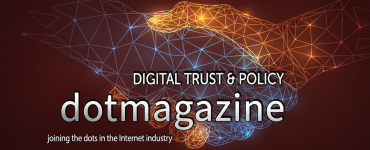Digital ecosystems contribute to achieving climate goals. Ubirch assists with the implementation and ensures transparency and trust – as reported by Ubirch CEO Stephan Noller in this interview.
Mr Noller, can you give us a brief description of Ubirch?
We help organisations to collect reliable metrics for environmental, sustainable and social considerations. With our solution, corresponding ESG data (Environmental, Social, Governance data) can be certified, verified and transmitted. To make emissions transparent, such verifiable credentials or verifiable digital proofs are necessary – for example, for CO2 certificates. We use advanced cryptography and open source technology to make the collection and verification of ESG data really straightforward.
Which digitalisation topics are particularly important to you?
Establishing digital ecosystems to reduce complexity: We want to make data from different systems usable for different stakeholders. The IT landscape in many organisations is highly complex. We contribute to digital ecosystems in which data exchange is straightforward and transparent, bridging all media gaps.
What are particular challenges in your sector at the moment and how are you working on them?
One particular challenge is the latest EU Corporate Sustainability Reporting Directive (CSRD). This significantly expands the reporting requirements to make it easier to understand where greenhouse gases are generated. In fact, 80-90 per cent of CO2 emissions occur within the supply chain. Measuring with Scope 3 helps identify where exactly the emissions hotspots are. We assist with a white-label solution to easily generate relevant reports, making them available, for instance, to partners and customers. This is exciting for data centres, because here it is relatively easy to measure electricity consumption and cooling performance.
How do you expect your eco Association membership to support you in this?
Energy consumption and emissions are an important topic in the IT industry. We want to better understand the needs of data centres and other IT companies concerning ESG data, and to accordingly develop our technology. Our aim is to provide eco member companies with a simple and affordable solution to satisfy the ESG data needs of their customers.
Looking to the future, what opportunities do you think digitalisation will offer us?
Achieving the climate goals is non-negotiable. Digitalisation plays a significant role in this regard. For it to succeed, transparency and trust are essential regarding the questions of where emissions arise and how they can be reduced. We want to play a part in this.
Mr Noller, thank you very much for the interview!




